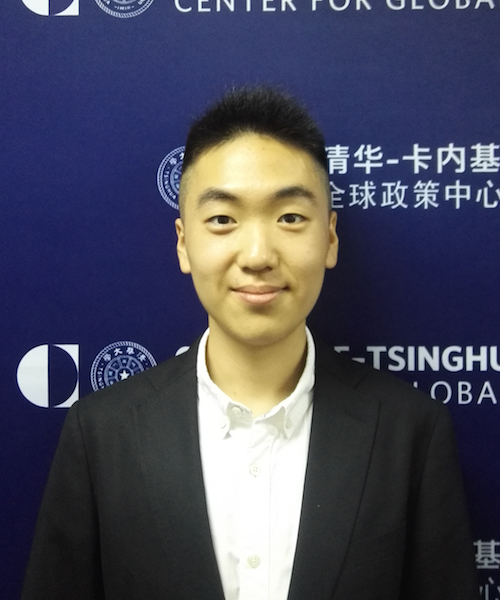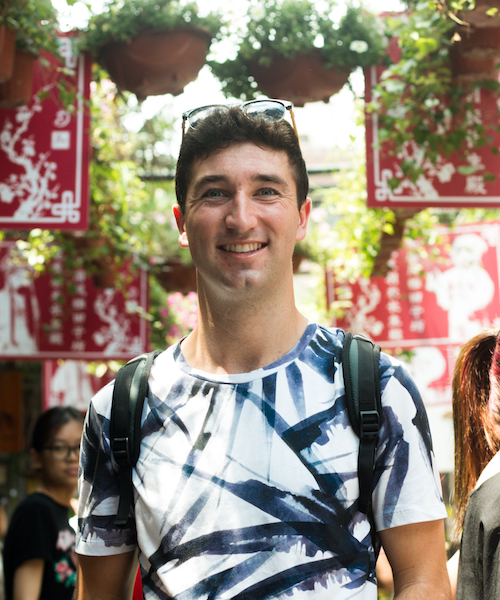
Addressing Global Issues with Innovations of the Digital Age —A Case on Combating Internet Terrorism
Chenyu Wu | June 3, 2018
Responding To: Living in a Digital Age: How Young Chinese and Americans Can Employ Innovation to Resolve Global Issues
Cynthia Wang
As young adults, the digital world envelops every aspect of our lives. We use Netflix for entertainment, Twitter to keep up with our favorite celebrities, and Facebook to share our stories. In China, similar products of different names dominate the same technological spaces. While the United States and China have clearly different technology and information legislations, media is similarly pervasive across both cultures, creating a young generation that is media-obsessed and constantly on WeChat, Facebook, Weibo, and Twitter. We are a culture that is constantly consuming information.
While media-culture is criticized for taking our attention away from being in the present, I argue that a lot can also be learned from it if we choose to take it in with a critical eye. In China especially, media and entertainment are forces that can no longer be ignored; new research has shown that for the next several years, the Chinese media industry is expected to grow at 8.8% per year—twice as fast as it is projected to grow in the rest of the world. While the U.S. industry will remain the largest for quite some time, in recent years, we have seen China’s increasing use of media to realize its soft power diplomacy. Chinese entertainment media then, similar to American media, is revealing of the country’s intent, promises, and desires both in a domestic and global sphere.
Take Wolf Warrior 2 (战狼2), for instance. Released in the summer of 2017, this film quickly rose to the top of record-breaking sales and became the second highest grossing film in a domestic market in history. Wolf Warrior 2 came out at a time in Chinese history when engagement in Africa has been particularly strong. The plot about a Chinese soldier going to Africa to rescue Chinese and African workers from rebels and avenge his fiancé’s death contains scenes that almost directly parallel recent Chinese involvements in Africa, such as the 2011 evacuation of Chinese citizens in Libya. Throughout the film you find snippets of Chinese criticism about Western conditional aid and its history of colonization, as well as praise for Chinese solidarity and support in Pan-Africanist movements. These remarks act as responses to Western criticisms of Chinese development efforts on the continent as “new colonialism.”
These themes do not take much probing to catch and understand. China’s foreign policy goals in Africa are actually some of its most ostentatiously flaunted, especially through media. The 2018 Lunar New Year TV Gala in particular received international backlash for its use of blackface in a skit about the success of Sino-African relations. It even begins with a reference to the Standard Gauge Railway—China’s largest BRI development in Kenya—which China lauded as one of the great successes of cooperation in the region. The inclusion of this skit, while executed insensitively, marks a sense of pride and nationalism that stems from a success in cultivating relations—or soft power—in Africa. What China chooses to convey in its movies and televised programs should garner more attention in our effort to understand global issues in an increasingly networked world. The discourses used, the stories chosen, and the projects highlighted all have significance in showing us what China wants to be seen.
Due to the brief nature of this blog post, I only chose to analyze Chinese media about Africa, but studies such as these can be applied to all types of entertainment and media as well as to American media. Even seemingly silly superhero films can reveal national ideologies. For example, the recent pattern of American superheroes choosing to go “vigilante” (see Captain America: Civil War, Batman v. Superman etc.) can be interpreted to indicate a resurgence of American “exceptionalism”, which has been reflected in President Trump’s political agenda.
With globalization, technological innovation, and the expansion of the entertainment industry, access to entertainment and media gets easier and easier. It is thus our job—in our effort to better understand global issues—to parse out the useful information from the non-useful. I believe that the greatest challenge of our generation will be in sifting through the vast quantities of information we are presented with every day and synthesizing them in a useful manner. In some media studies, the underlying ideologies and foreign policy goals are not as obvious as those in Wolf Warrior 2 or Captain America: Civil War, but despite this, most sources of entertainment media should, at the very least, teach us something about history or contemporary culture. At the very least, consumption of cross-cultural entertainment media should facilitate a type of exchange of values and ideas. With mutual understanding, we can foster mutual respect and cultivate a generation that will be able to grapple with the increasingly global issues of our world. Ultimately, I propose that we, as American students, start doing our part as global citizens and begin exploring Chinese (and other foreign) entertainment media. With Chinese teens already well-versed in shows such as Friends and Big Bang Theory from learning English, it should make sense that this cultural exchange shifts to one that is two-sided.
Cynthia Wang is a senior at the University of Pennsylvania pursuing a double major in political science and environmental studies.

Chenyu Wu | June 3, 2018

Yunxin Wang | June 1, 2018

Michael Mullaney | May 30, 2018

Hongjin Xu | May 29, 2018

Ruolin Zhao | May 27, 2018

Yamillet Payano | May 24, 2018

Jessie Dalman | May 23, 2018

Haile Chen | May 22, 2018